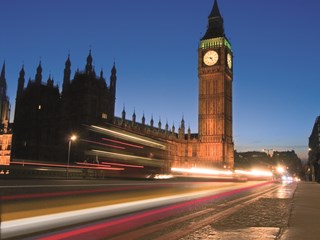
Chancellor Kwasi Kwarteng made his mini budget speech today, which included several key tax changes. Below we have listed some of the key changes which will affect your personal finances.
Earlier this year, former Chancellor Rishi Sunak announced a 1.25% rise in National Insurance contributions. This will be scrapped on 6 November, while the 1.25 percentage point Health and Social Care Levy will not come into force in April next year.
This cut is set to save businesses on average £9,600 a year to invest elsewhere. Meanwhile, for almost 28 million workers this will equate to keeping an average of £330 per year, according to the HM Treasury.
The Treasury says health and social care will continue to be funded as if the levy was in place.
In his Spring Statement, former Chancellor Rishi Sunak also announced his intention to lower income tax by 1p before the end of 2024. Today, Kwarteng announced that this cut will take effect from April next year.
“That means a tax cut for over 31 million people in just a few months’ time,” Kwarteng said in his statement.
The tax cut means the average worker will gain £170 according to the Treasury.
In addition to the income tax rate, the additional rate of income tax threshold will be abolished on 6 April. Currently, those who earn over £150,000 per year will be subject to an income tax rate of 45%. However, when this change takes place, these earners will see their income tax drop to 40%.
“At 45%, [the additional rate of income tax] is currently higher than the headline top rate in G7 countries like the US and Italy. And it is higher even than social democracies like Norway,” said Kwarteng.
For savers, it means those that have been additional rate taxpayers will see a Personal Savings Allowance of £500 in April next year.
Previously, corporation tax was due to rise to 25% next year for firms making a profit of £250,000 or more. This equates to nearly 10% of actively trading companies.
However, this plan will be scrapped, and corporation tax will stay at 19%.
“We will have the lowest rate of corporation tax in the G20. This will plough almost £19 billion a year back into the economy,” explained Kwarteng.
However, the Institute for Public Policy Research (IPPR), a think tank, warned the Government that the current corporation tax rate has not fuelled the economy.
“Tax cuts are not a magic bullet to increase investment and growth,” said George Dibb, the Head of the Centre for Economic Justice at the IPPR.
“In fact, despite having some of the lowest levels of corporate taxation, business investment in the UK is the lowest in the G7. We’re not just falling behind the largest economies either, the UK is consistently in the worst performers in the OECD club of 38 developed economies," he explained.
Alcohol tax will also be frozen from February 2023. The Treasury believe this will be worth around £600 million.
This will save the consumer 7p on a pint of beer, 4p on a pint of cider, 38 p on a bottle of wine, and £1.35 on a bottle of spirits.
The nil-rate stamp duty band doubled to £250,000 as of midnight. This means an extra 200,000 buyers will pay no stamp duty according to the HM Treasury.
In addition, first time buyers will only pay Stamp Duty Land Tax on homes over £425,000, up from the £300,000 previously set.
However, there is the concern that this cut will further increase house prices, according to Ben Merritt, director of mortgages at Yorkshire Building Society.
“While naturally a cut in stamp duty is welcome news for many homebuyers, there’s a real risk that sweeping cuts for all buyers will once again only fuel rising house prices, making it even harder for first-time buyers to achieve homeownership,” he said.
Meanwhile, Simon McCulloch, Chief Commercial & Growth Officer at Smoove said that Stamp Duty Land Tax needed reform.
“What was historically a relatively minor consideration in the overall cost of a housing transaction, has become a powerful deterrent to people looking to move home, with all of the negative social and economic effects that such a disincentive brings,” he explained.
Information is correct as of the date of publication (shown at the top of this article). Any products featured may be withdrawn by their provider or changed at any time. Links to third parties on this page are paid for by the third party. You can find out more about the individual products by visiting their site. Moneyfactscompare.co.uk will receive a small payment if you use their services after you click through to their site. All information is subject to change without notice. Please check all terms before making any decisions. This information is intended solely to provide guidance and is not financial advice. Moneyfacts will not be liable for any loss arising from your use or reliance on this information. If you are in any doubt, Moneyfacts recommends you obtain independent financial advice.